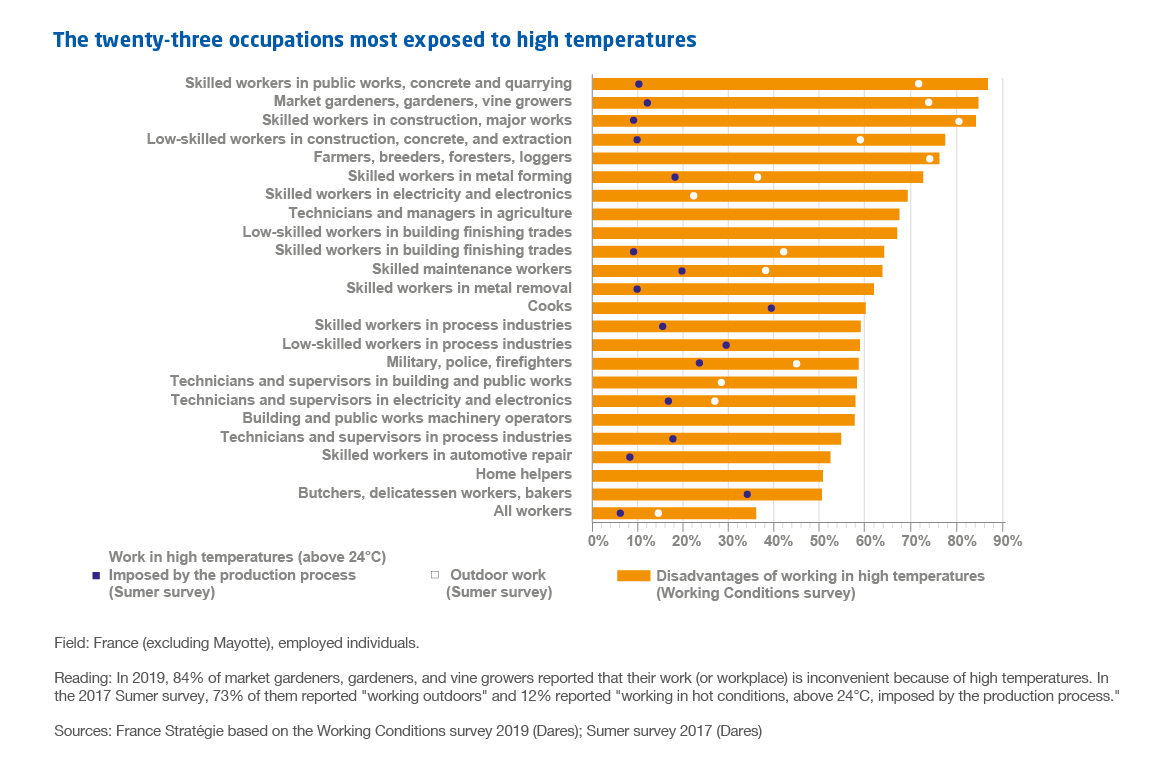
Climate change affects all workers to differing degrees. High temperatures impair their physical and cognitive abilities, sometimes endangering their health and safety, especially in the presence of aggravating factors such as strenuous work tasks, fragile physical condition, or grueling home-work commutes. Occupational risks related to heat can ultimately reduce work productivity and hinder economic growth.
The proportion of workers exposed to heat is not well-known today. In France, it is estimated to range from 14% to 36% according to various sources. Those most affected often work in agriculture or construction-related occupations. Over the next three decades, it will depend on the location of these workers. However, with few exceptions, there is no overlap between employment areas expected to experience a significant increase in extremely hot weather days and those characterized by an overrepresentation of heat-exposed professions.
Existing regulatory measures are nevertheless insufficient as they are based on handling exceptional events, at the expense of a more structural and systemic approach. Although several national plans such as the Workplace Health Plan (PST – Plan Santé au travail), the French national climate change adaptation plan (PNACC - Plan national d’adaptation au changement climatique), and the National Health and Environment Plan (PNSE – Plan national Santé - Environnement) already address the issue .They lack coordination and overall interministerial guidance. Public authorities and the world of work must address these challenges to further structure national and local public action.

Read the full document in french







